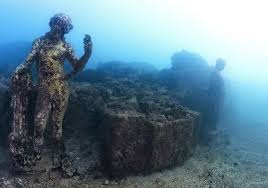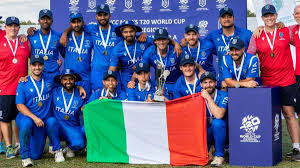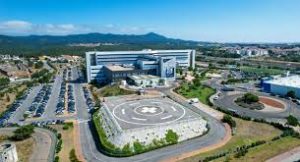ISSI hosts “Next-Generation International Security Experts Conference 2024?

Celina Ali
Islamabad: As part of the vision to engage the youth, aiming to encourage critical thinking and promote culture of research among them, the India Study Center at the Institute of Strategic Studies Islamabad (ISSI) on Thursday organized the ISSI’s first-ever “Next-Generation International Security Experts Conference 2024.” The students and young researchers from various Universities and think-tanks presented their papers on issues of importance for Pakistan and those affecting regional security.
In his introductory remarks, Director India Study Centre Dr. Khurram Abbas said that the objective of this event was to promote culture of policy-oriented research among the young scholars, said a press release. He highlighted that the conference will have a diverse pool of speakers as they hail from the Indian Illegally Occupied Jammu & Kashmir (IIOJK), Azad Jammu and Kashmir, Turkiye, Khyber Pakhtunkhwa, South Punjab and Islamabad.
He added that based on the papers presented at this conference, ISC will publish a book in June 2024. In his welcoming address, Director General ISSI Ambassador Sohail Mahmood said that in a rapidly transforming global environment as well as turbulent times regionally, it is important to go beyond the traditional approaches and employ fresh thinking in policy research, which can primarily come from the young and imaginative minds. He said, given its size in Pakistan’s demographic landscape, the youth is an indispensable stakeholder as far as the future of Pakistan is concerned.
It is with this view that the Institute of Strategic Studies took this initiative of engaging with the young international security experts. He advised young scholars to be bold and innovative in thinking, flexible in adapting to new technologies and working methods, and hardworking and persistent in pursuing goals. Above all, he urged them to do their work with utmost commitment, professionalism and integrity. In his remarks, the chief guest Ambassador Imran Ahmad Siddiqui, Additional Secretary (Asia Pacific) at Ministry of Foreign Affairs, said that South Asia is the most populous region in the world but unfortunately the least developed one.
Nations these days do not negotiate individually, but in regional groups. Unfortunately, due to political reasons, the countries of South Asia cannot speak with one voice at the international platforms. Highlighting political geography of the region, he said that there is one country that holds most of the resources of the region and it also shares borders with almost all the countries of the region. Unlike ASEAN where Indonesia, being the largest country of the region, has been at the forefront of regional integration, the largest country in South Asia is not willing to give any space to the smaller countries of the region.
Ambassador Siddiqui also spoke about the Jammu & Kashmir dispute and the emergence of supremacist ideology in India. He stressed that Pakistan will continue its support to the Kashmiri people in their just struggle for self-determination. He also urged academic and research institutions to focus their research work on enhancing understanding of all individual South Asian states as well as the region as a whole. The conference was divided into three separate working sessions.
The first session, titled “Evolving Nature of Terrorism in South Asia”, focused on the actual and potential use of emerging technologies as well as the social media by terrorist groups to advance their nefarious designs. The second session, titled “Strategic Stability in South Asia”, focused on nuclear diplomacy in the age of emerging technologies, Artificial Intelligence, Implications of U.S. Integrated Deterrence on South Asian Strategic Environment, and India’s Astro-Politics and its implications for Pakistan.
The last session of the conference focused on “Non-Traditional Security Threats in South Asia.” The young experts presented their views on issues like Non-Traditional Threat Management between India and Pakistan; prospects of Water Conflict between India and Pakistan; Delimitation, Demographic Change, and Electoral Politics in Occupied Kashmir; and Strategic Subcultures in Decision-Making Process of Maritime security policy in Pakistan. The ‘Mentors’ for the young scholars in the three sessions included Dr. Muhammad Khan, Chairman, Social Sciences Department, International Islamic University, Islamabad; Dr. Adil Sultan, Dean, Faculty of Aerospace and Strategic Studies, Air University, Islamabad; and Dr. Adam Saud, Dean, Faculty of Humanities and Social Sciences, Bahria University, Islamabad.
All three mentors highly appreciated the efforts of young scholars and urged them to consult further primary sources in order to make their research more substantive and meaningful. They also made specific suggestions to the researchers on their individual papers. In his concluding remarks, Chairman Board of Governors, Ambassador Khalid Mahmood said that ISSI being a premier think-tank of Pakistan organises roundtables and seminars on a regular basis. However, this conference was a novel experiment. ISSI always makes efforts to associate young scholars, but in this event all participants were young scholars which made it unique. He hoped that such events will take place on a regular basis.





